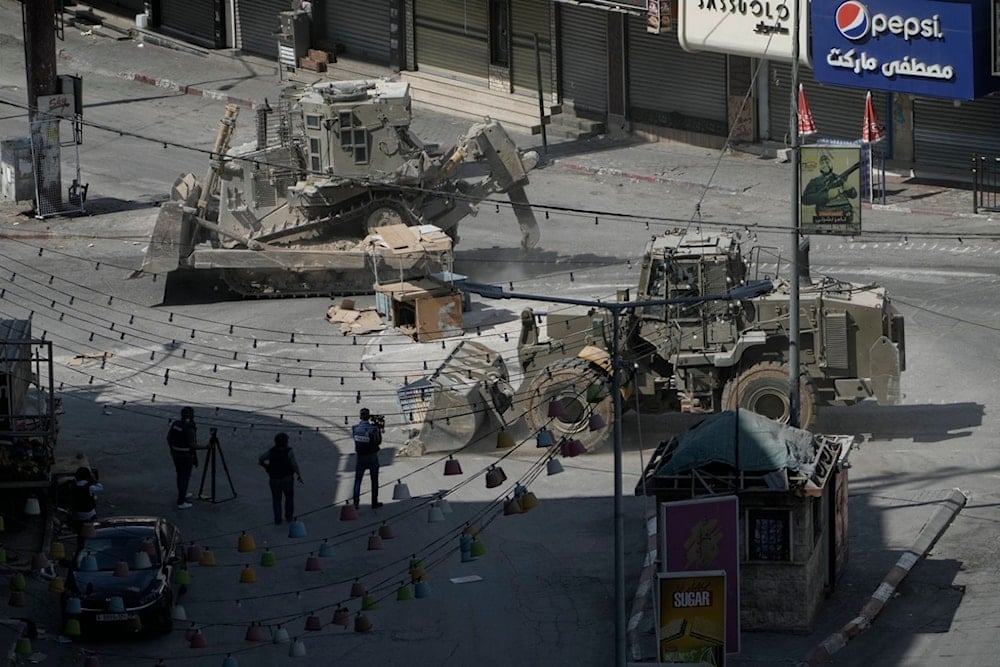Jenin residents report dire conditions amid ongoing Israeli raid: AFP
Bulldozers were seen tearing through Jenin on the first day of the raid, ripping up asphalt and damaging underground infrastructure.
-

Israeli bulldozers move on a street during a military aggression in the West Bank city of Jenin, Saturday, Aug. 31, 2024 (AP Photo/Majdi Mohammed)
AFP reported on Saturday details of Israeli forces' latest raid into Jenin, where the correspondent described concrete slabs and sheet metal piled high along the streets as residents assessed the extensive damage.
The raid, which began on Wednesday, has left visible scars throughout the city, including collapsed walls, uprooted trees, and roofs buried under mounds of rubble.
Bulldozers were seen tearing through Jenin on the first day of the raid, ripping up asphalt, and damaging underground infrastructure.
Residents described the situation as dire. "We are cut off from the world," said Taher al-Saadi, a resident of east Jenin.
"The water is cut off. The electricity is cut off, the sewage system is no longer working. All the infrastructure is destroyed, we no longer have any services that work."
Read more: Israeli illegal settlers attack Palestinians across West Bank
Humanitarian Crisis Unfolds
The ongoing raid has caused significant disruption to daily life in Jenin, a camp where Israeli incursions are not unusual.
However, this latest raid is markedly larger and more prolonged than previous ones, impacting multiple cities across the West Bank. As fighting continues, essential services in Jenin have been severely affected.
"The bakeries are at a standstill. We can't find milk for the children," al-Saadi added, highlighting the acute shortages faced by residents.
Wisam Bakr, director of Jenin Government Hospital, described Saturday as "the worst day since the start of the raid." He reported ongoing clashes and sporadic bombings that have continued to terrorize the local population.
Increasing Casualties and Fear
The aggression has also resulted in numerous casualties. An 82-year-old man was shot dead by an Israeli sniper on Friday, bringing the death toll to at least 20 Palestinian martyrs since the operation began.
Resident Faiza Abu Jaafar expressed the fear and trauma experienced by many in Jenin. "It's very hard, for the children and for everyone. We are afraid, we are terrified, look at all the damage," she said while standing amidst the debris. "We are living in dark days."
Read more: Israeli soldier killed as Palestinian Resistance ambush Jenin invaders
Restricted Access and Uncertainty
The situation in Jenin’s refugee camp, where much of the fighting appears to be concentrated, remains largely unknown.
Jenin governor Kamal Abu al-Rub told AFP that the camp has become a "military zone with no access," with Israeli forces blocking entry to hospitals and cutting off the city from the camp.
"Neither the civil defense, nor the ambulances, nor the journalists can go and see what is happening there," he said.

 3 Min Read
3 Min Read










